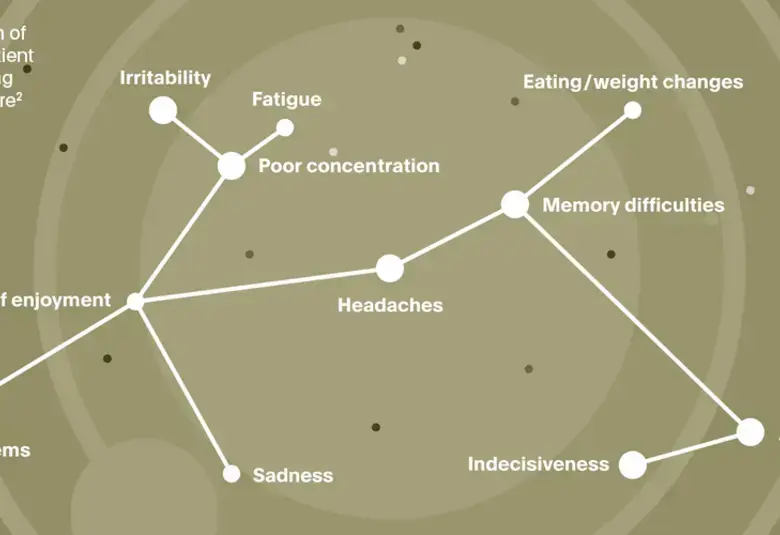Epilepsy is one of the most common chronic neurological disorders. It relates to abnormal initiation and propagation of electrical impulses from hyperexcitation neurons as well as network disorders. There are many negative consequences of epilepsy, both physically and mentally.1 Lots of people with chronic epilepsy develop injuries or accidents. They also have certain side effects from medicine, particularly those who use multiple anti-seizure medications.2
Depression is the most common psychiatric comorbidity in chronic epileptic disorders. 3 It is commonly under-recognized and untreated if individuals, family members, and treating physicians are not aware. They may experience sadness or otherwise present with atypical pleomorphic characteristics, for example, multiple somatic complaints as well as non-epileptic events. In addition, depression would occur according to their physical illness, psychosocial circumstances, and medical antiseizure medication induced. The prevalence of depression in people with epilepsy varies from 10% to 40% depending on how well their seizures are controlled.4 It is widely recognized that populations with drug-resistant epilepsy have a higher prevalence of major depressive episodes than those seizure-free. In addition, seizures and depression show a strong bidirectional relationship as each can cause the other condition to worsen, causing poor quality of life and high medical costs. Moreover, epilepsy patients with depression may have reduced antiseizure medication adherence and poor cognitive function.
Physicians should be aware and always survey their patients’ moods and feelings of depression as well as suicidal ideation and behavior anytime they come to the clinic. Various screening tests, including screening self-rating scales, are available in clinical practice and helpful in identifying depressive episodes in patients with epilepsy. Furthermore, people with suspicious depressive episodes should be sent for psychiatric evaluation and or otherwise receive proper non-pharmacological and pharmacological treatments. Choosing an antidepressant is very challenging. For the best benefit to them, it is important to select one with high efficacy, low side effects, and no drug-drug interactions. Depression is the most frequent psychiatric comorbidity in epilepsy. Yet, it remains under-recognized and untreated in a significant number of patients. It may mimic primary depressive disorders, but in a significant percentage of patients, depression presents with atypical pleomorphic characteristics. The use of screening self-rating scales may help to identify depressive episodes in patients with epilepsy, but a diagnosis cannot be established by the sole use of these instruments without an additional, in-depth evaluation. Timely recognition and treatment of depression are of the essence in epilepsy patients, as its persistence is an independent predictor of poor quality of life, increased suicidal risk, greater use of health services, and higher medical costs not related to the psychiatric treatment. Neurologists will often find themselves in the position of being the only health care provider available to initiate treatment. Accordingly, they should be well trained to provide psychopharmacologic treatment for major depressive episodes, dysthymic disorders, and minor depression. However, patients with suicidal ideation, psychotic symptoms, or bipolar disorders should be referred immediately to the care of a psychiatrist.




